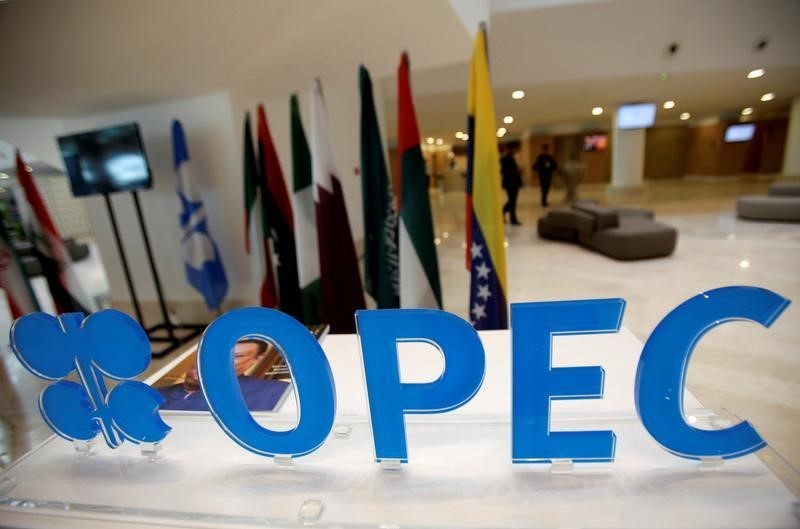U.S. stocks lower as investors rotate out of tech ahead of Jackson Hole
(Corrects to say December, not November, in third-last
paragraph)
* Brent, WTI futures both up 0.4% in quiet trading
* Stronger-than-expected Q1 performance predicted -
strategist
By Aaron Sheldrick
TOKYO, Dec 26 (Reuters) - Oil prices rose on Thursday,
buoyed by a potential breakthrough in the Sino-U.S. trade war
and OPEC-led efforts to constrain supply, although trading was
quiet as many markets were in holiday mode.
Brent crude LCOc1 was up 28 cents, or 0.4%, at $67.48 a
barrel by 0651 GMT.
West Texas Intermediate CLc1 was up 25 cents, also a 0.4%
gain, at $61.36 a barrel.
"Oil prices continue to show year-end strength supported by
a combination of definitive progress on the U.S.-China trade
deal, the Dec OPEC/OPEC+ agreement, and slowing shale activity,"
said Stephen Innes, chief Asia market strategist at AxiTrader.
"All of which is pointing to a stronger performance for oil
prices in Q1 than anyone had thought only two months ago."
U.S. President Donald Trump said on Tuesday he and Chinese
President Xi Jinping will have a signing ceremony for the
so-called Phase 1 agreement to end their trade dispute that was
put together earlier this month. The roughly 17-month trade war hit global economic growth
and demand for oil, leaving prices range-bound for the most of
the year.
Lower demand also rendered supply cuts by the Organization
of Petroleum Exporting Countries (OPEC) and allies including
Russia less effective in supporting the market.
The so-called OPEC+ grouping agreed earlier in December to
extend and deepen production cuts that would take as much as 2.1
million barrels per day (bpd) of supply off the market, or
roughly 2% of global demand.
U.S. producers, not party to the OPEC+ agreement, have been
pumping record amounts of oil, especially shale crude, to fill
any supply gaps. Growth in production in the U.S. is forecast by
many to slow, however.
Still, more supply is coming in the new year with Saudi
Arabia and Kuwait earlier this week agreeing to end a dispute
over their Neutral Zone, which can supply as much as 500,000
barrels per day of oil, or about 0.5% of global demand.
